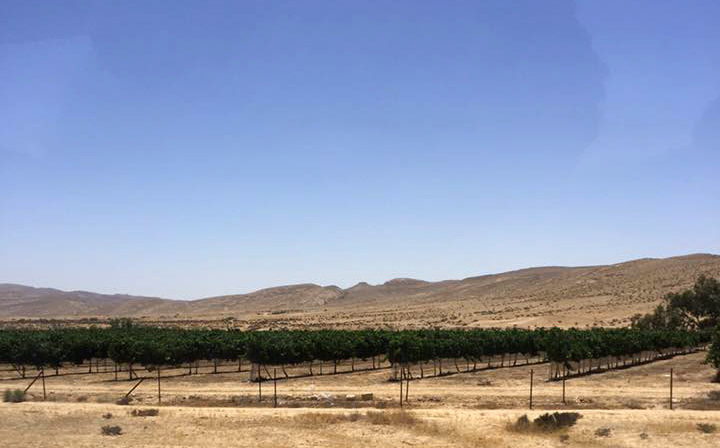Secretary Ross is traveling through Israel this week with a California delegation interested in adaptation strategies for climate change and drought
Yesterday we visited the Ben Gurion University Desert Research Institute. Ben Gurion was Israel’s first prime minister. He believed in the potential of the Negev Desert and said, “If the state does not liquidate the desert, the desert may liquidate the state.” (He is buried here overlooking a vast desert valley.) The Desert Research Institute was established specifically to address dry land issues and how to make the desert suitable for humans to live in. The Negev represents 60 percent of Israel’s land mass and contains 8 percent of its population.
Dry land covers one-third of all the land on earth. Within the Desert Research Institute are three divisions to address water issues; dryland agriculture and biotechnology; and, environmental studies and solar science (this includes social sciences and architecture). Climate change studies are a part of all these.
According to the United Nations, by 2050 forty-five percent of the world’s population will live in countries chronically short of water. Historically, we have thought of the lack of water as a problem of the poor in developing countries, but not any more.
Plant science and microbiology are the heart of the Ag program. Researchers are focused on root studies. As one said, “Understanding roots will lead us into the second green revolution!”
We ended the day with a stop at a newly opened small case production winery in Moshav Givat Yeshayahu. Here we met with the coordinator of water and stream rehabilitation for the Society for the Protection of Nature in Israel. It was a lively discussion about how to work with farmers and policy maker to restore stream flows and river restoration. Throughout its history the emphasis has been to build for a new nation and the organization is concerned that the impacts to nature must be mitigated before it is too late.





